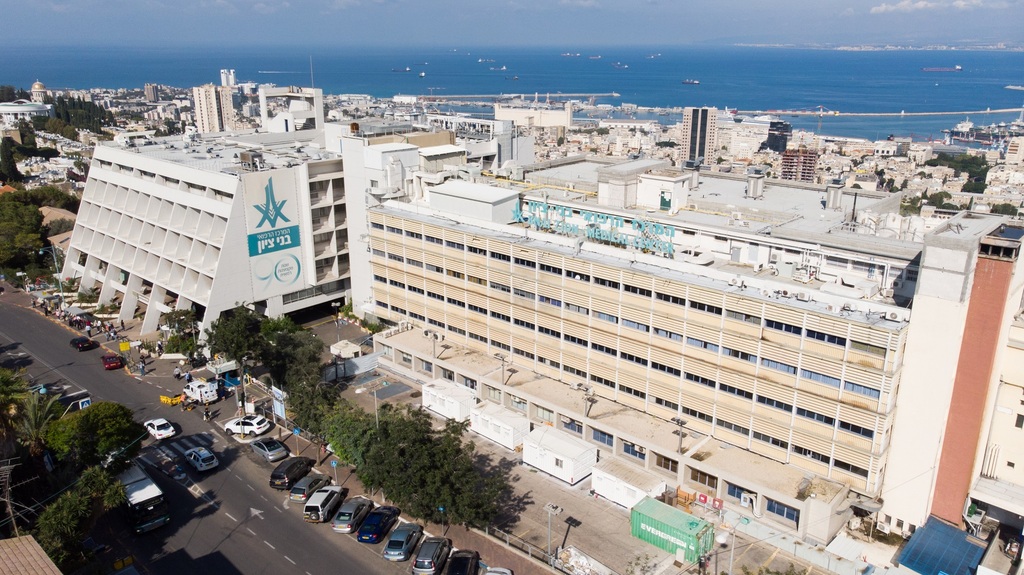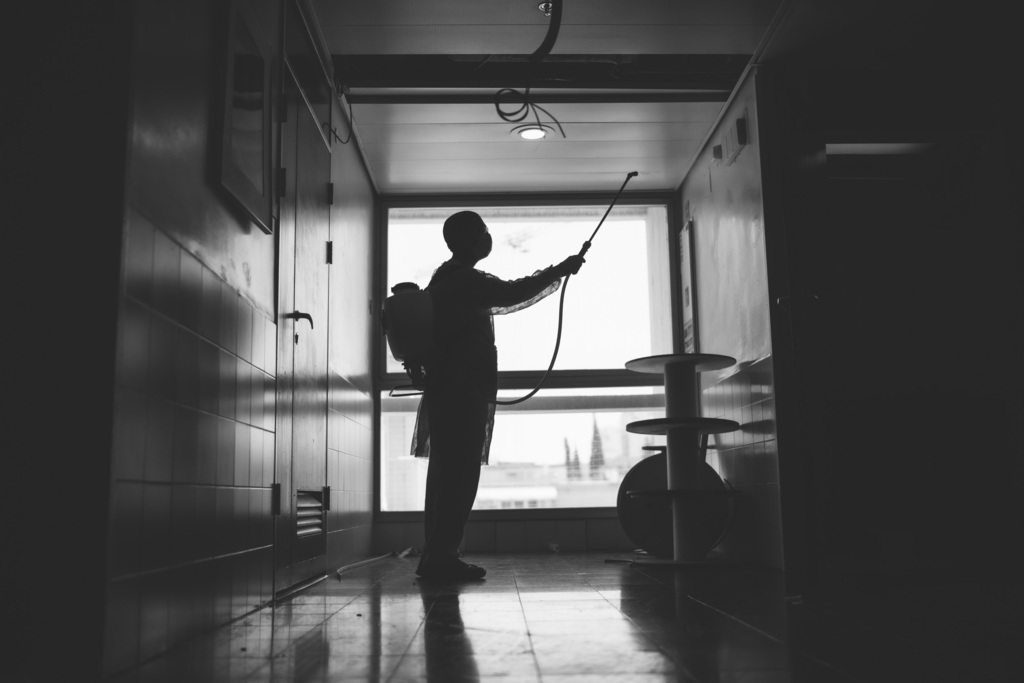Ever since the coronavirus pandemic swept the world earlier this year, photographers of all stripes have been hard at work documenting the ravages the pandemic has wreaked on everyday life, from lockdowns and new social distancing norms to protests and economic devastation.
One photographer, Israeli-born Micha Brikman, decided to turn his lens to the workers who have found themselves on the frontlines of the war. Nurses, doctors, technicians and other hospital workers all became the focus of his relentless pursuit to record the strange times we live in.
8 View gallery
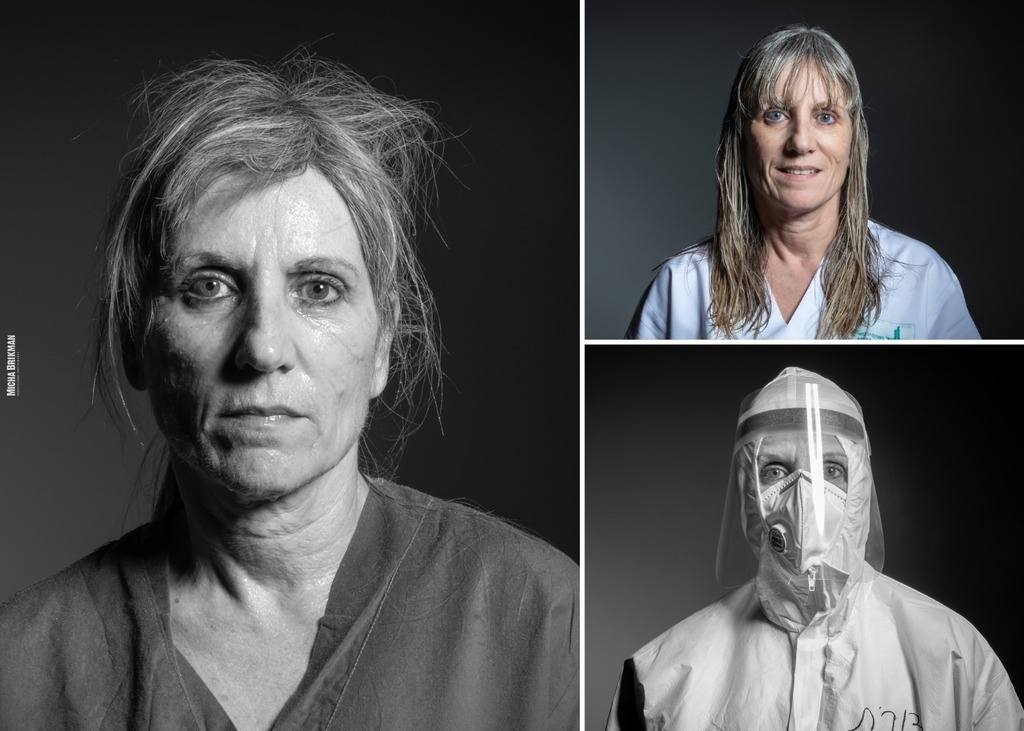

Clockwise from left: A nurse at Bnai Zion Medical Center’s coronavirus ward after a shift; post-shower later on; before entering the ward
(Photos: Micha Brikman)
During the first wave of the pandemic and over the course of a week, Brikman snapped hundreds of pictures inside Haifa’s Bnai Zion Medical Center, capturing compelling images of daily life inside a place most would not dare approach.
Above all, he hoped to honor those struggling to work under increasingly difficult conditions.
“I discovered that there are angels here,” Brikman says of the experience.
“I had heard about the coronavirus but did not get what it was all about until I came here. Then I understood what it means to be a fighter during the pandemic; they are truly fighters on the frontlines battling the coronavirus,” he says.
The results of Brikman’s efforts are currently on display at the entrance to the hospital in an exhibit titled “The Heroes of Bnai Zion Medical Center.”
The images highlight moments of joy, sadness and hardship in the midst of the pandemic, which has claimed the lives of over one million people worldwide and, as of Wednesday, 1,818 in Israel.
“We decided to put the exhibition here at the entrance to hospital as way of giving our staff recognition for the work they do,” says Dr. Ohad Hochman, CEO of Bnai Zion.
“It’s very difficult and strenuous work. Everyone who comes to our hospital, be they visitors or doctors, can now see them. They are our heroes, the ones who take care of coronavirus patients in an exceptional way,” he said.
8 View gallery
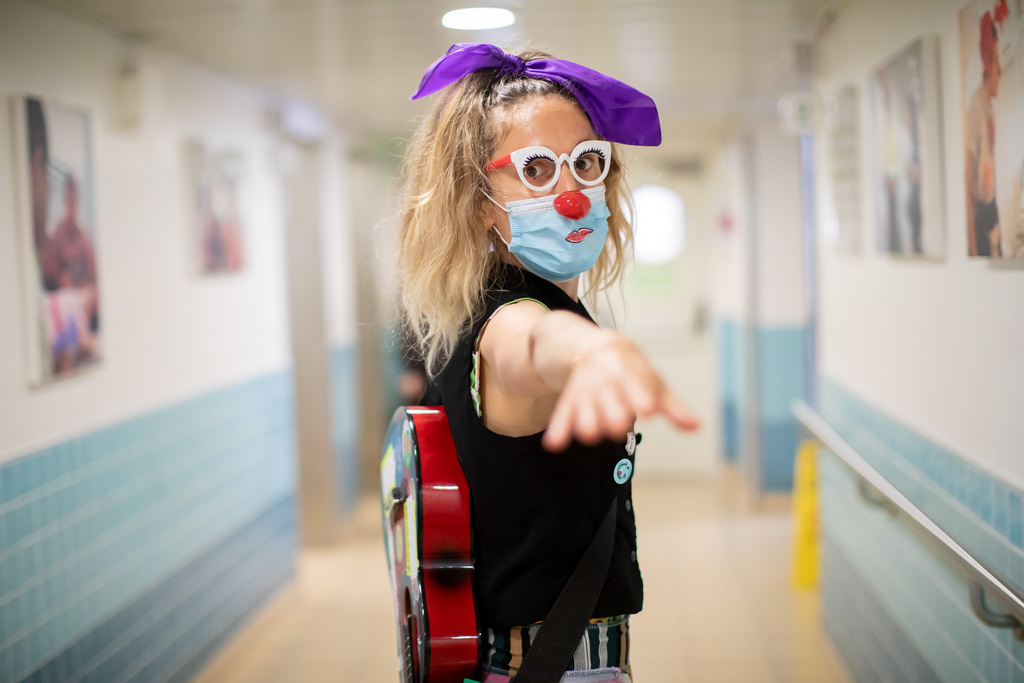

A medical clown tries to bring some cheer to sick children at Bnai Zion
(Photo: Micha Brikman)
Among the notable images on display are medical clowns trying to raise a little cheer in the children’s ward, and cleaning staff disinfecting waiting areas in full pandemic regalia.
While these snapshots are poignant in their own right, the real stars of the show are undoubtedly a series of powerful portraits Brikman took of the medical staff working in the hermetically sealed COVID-19 wards.
The striking images of nurses and physicians – taken before shifts; immediately after they emerge from the ward and peel off their protective gear; and some 15 minutes after the decontamination process – are gripping portraits of the toll the pandemic takes on medical workers.
“What most surprised me was how giving the workers are. It’s something that I think about a lot,” Brikman says.
“In the coronavirus ward they work in 12-hour shifts. They go in there wearing a protective suit and for three hours at a time, they can’t scratch themselves, go to the bathroom or do anything,” he says.
“When they come out, if they discover that there’s a shortage of nurses or doctors, they say, ‘I can go back in if you need me to'. This [kind of work ethic] is not a given at all.”
8 View gallery
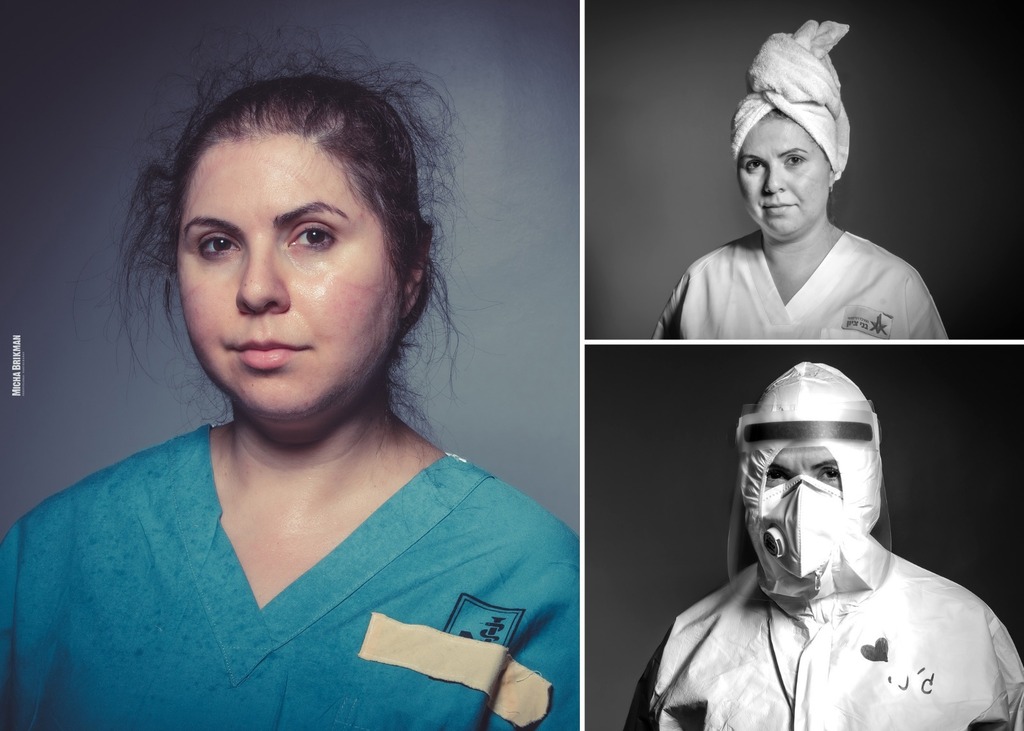

A nurse in Bnai Zion Medical Center’s coronavirus ward after a shift (left); post-shower and decontamination after a shift (top right); before entering the ward (lower right)
(Photo: Micha Brikman)
The physicians and nurses themselves were more than happy to take part in Brikman’s project.
“It was very touching,” says Dr. Anna Solopov, the head physician in charge of the hospital’s coronavirus ward.
“Truly, there is a lot to say about this: The photographer really wanted people to understand how hard it is, both mentally and physically, to work inside the coronavirus ward.
“People on the outside – and even those here in the hospital who are working in other departments – really have no idea what’s going on in these wards.”
8 View gallery
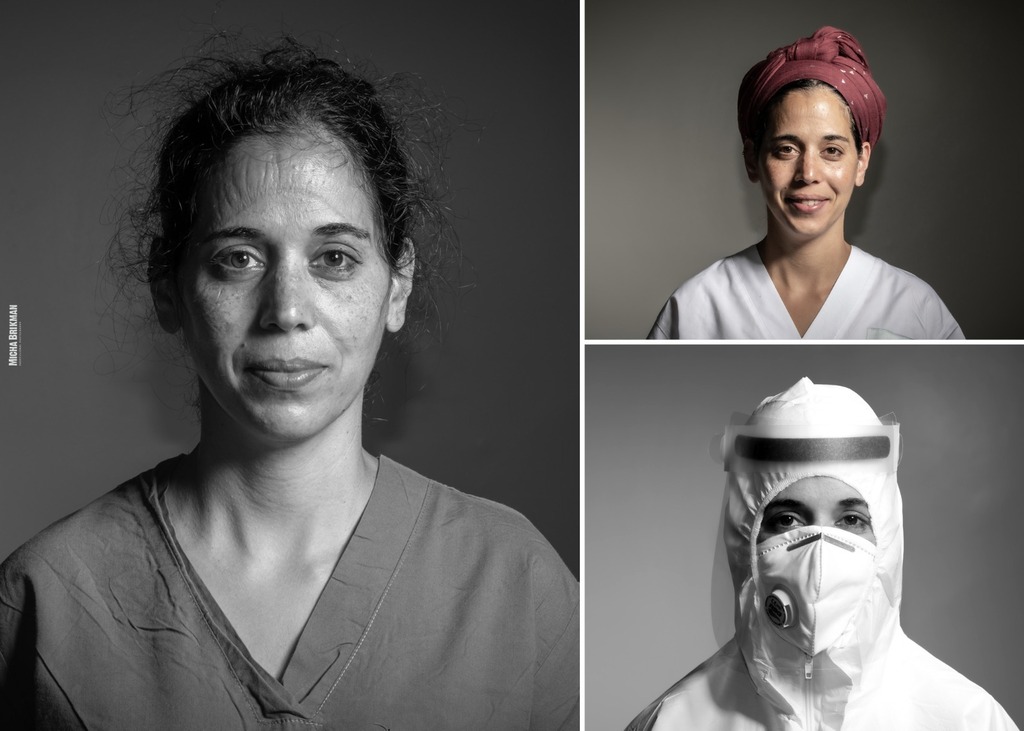

Clockwise from left: Aya Eshel, head nurse of Bnai Zion Medical Center’s coronavirus ward, immediately after a shift; before a shift; before entering the ward
(Photo: Micha Brikman)
Aya Eshel, the ward’s head nurse, feels that Brikman had a positive effect on medical staff.
“We didn’t feel that the artist was disturbing our work as he was taking pictures,” Eshel says. “In fact, I could see that it was making the staff feel good.”
Forced to contend with an elusive and often deadly virus, both Eshel and Solopov believe that Brikman performed a public service by shedding light on the inner workings of the coronavirus ward.
8 View gallery
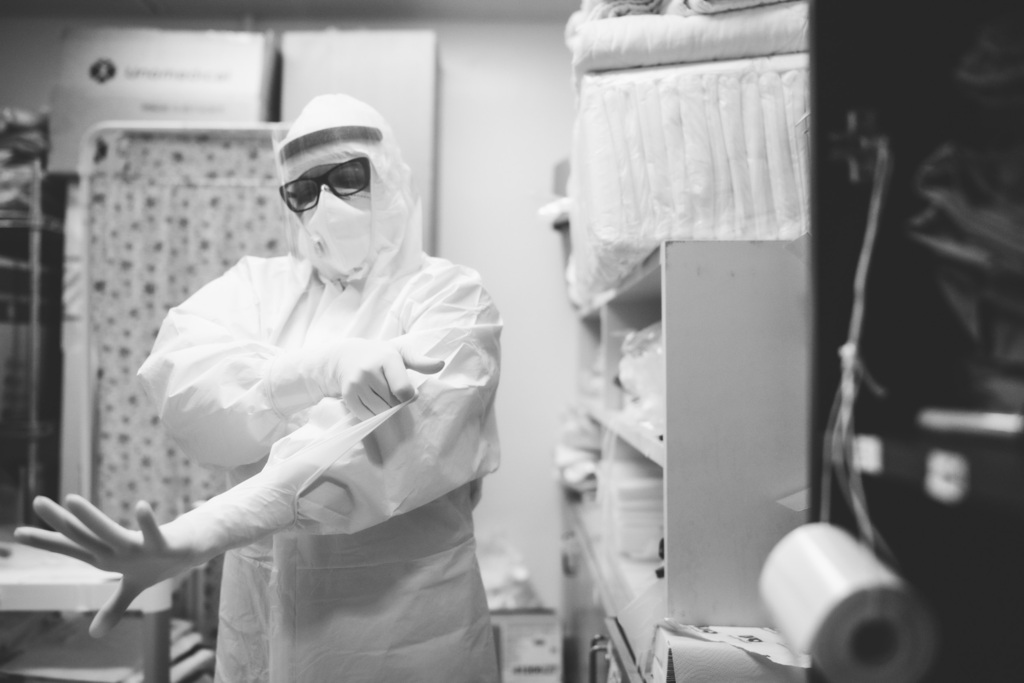

A hospital worker dons protective gear at Bnai Zion Medical Center during the first wave of the coronavirus pandemic
(Photo: Micha Brikman)
“People need to understand that this is a very dangerous virus and that it’s impossible to know ahead of time who will get seriously ill from it,” Solopov says.
“We know that younger people generally are less affected by it, but we’ve also seen people in their 30s, 40s and 50s get severely ill.”
Eshel agrees.
“I get the feeling that people don’t really understand this disease. It’s a really serious, confusing and challenging disease. People are being careless and not taking care of themselves or those around them,” she says.
8 View gallery
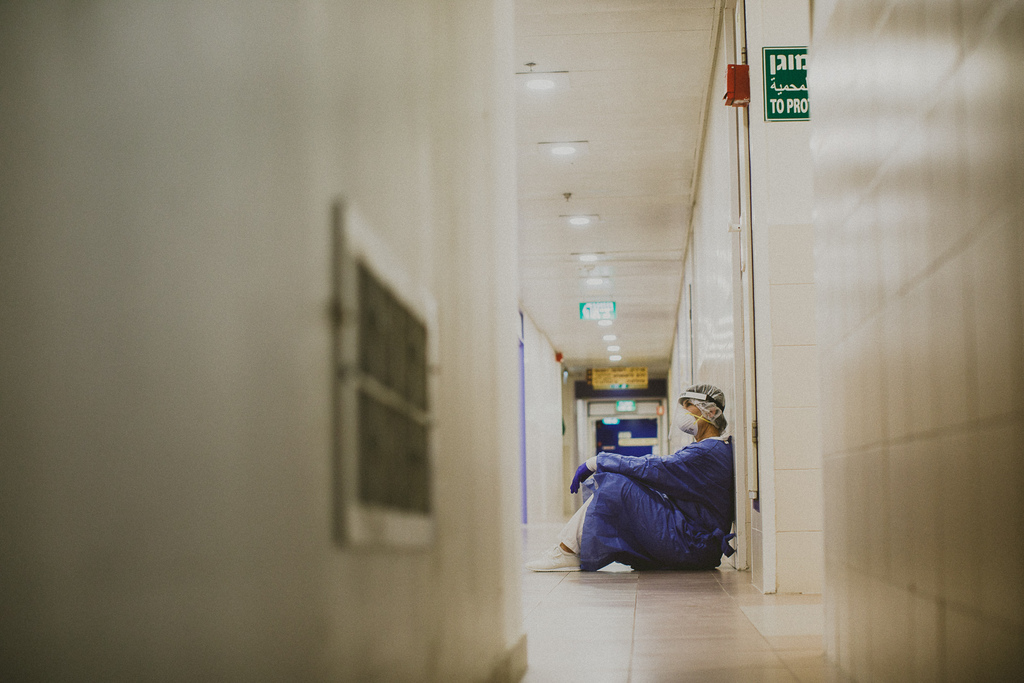

A lab technician rests in a hallway at Haifa’s Bnai Zion Medical Center
(Photo: Micha Brikman)
The exhibit will remain on display for several months.
Some of the portraits have also been selected to be featured in the upcoming Local Testimony exhibition, a prestigious annual event highlighting exceptional works of photojournalism in Israel that is usually held at the Eretz Israel Museum in Tel Aviv.
Article written by Maya Margit. Reprinted with permission from The Media Line


